10 Surprising Stats About How Regular Golfers Play The Old Course
Data from Shot Scope, the GPS and automatic shot tracking technology company shows how amateur golfers get on when playing the historic layout.


As the very best golfers in the world negotiate the famous Old Course in St Andrews during the 150th Open Championship this week, we average golfers will marvel at their power and skill. We’ll also inevitably wonder how we would be getting on over the hallowed links.
New data collated by Shot Scope might just give us some idea. From a database of 6,780 rounds, with over 564,000 shots recorded, the GPS and automatic shot tracking technology company has analysed amateur golfers’ performances over the Old Course to deliver insights including: How does The Old Course compare to other Open Championship courses in the UK? What holes are the hardest? Where can you expect to make a rare birdie? Which green causes the most 3 putts? Where do you need to hit your ball off the tee in order to score well?
Video: Things you didn't know about St andrews
How do regular golfers play the old course
1) The Old Course is the third easiest course on The Open rota - With Royal Troon and Royal St. George's ranking easier amongst Shot Scope users.
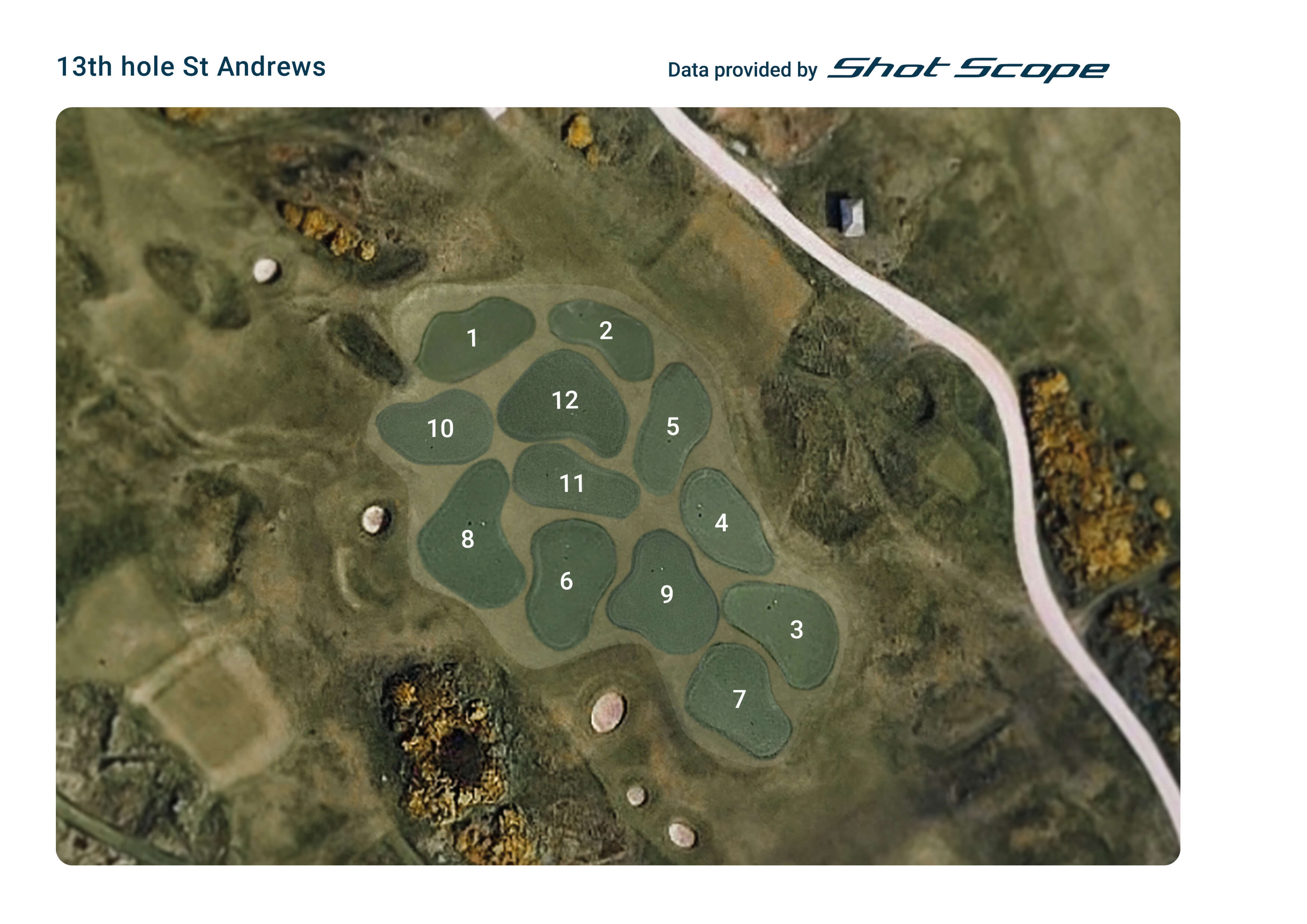
2) The 13th green, shared with the 5th, produces the most three putts of any hole on the course. One reason for this is that it is the largest green on the course - in fact, you could fit the first 12 greens at Pebble Beach on this green!
3) The 9th hole is the easiest on the course amongst Shot Scope users. With a scoring average of 4.15 vs a par of 4. In contrast, the 17th is the hardest hole with an average of 5.31 vs a par of 4. This average score is higher than that of the par 5 5th hole, which has an average of 5.28.
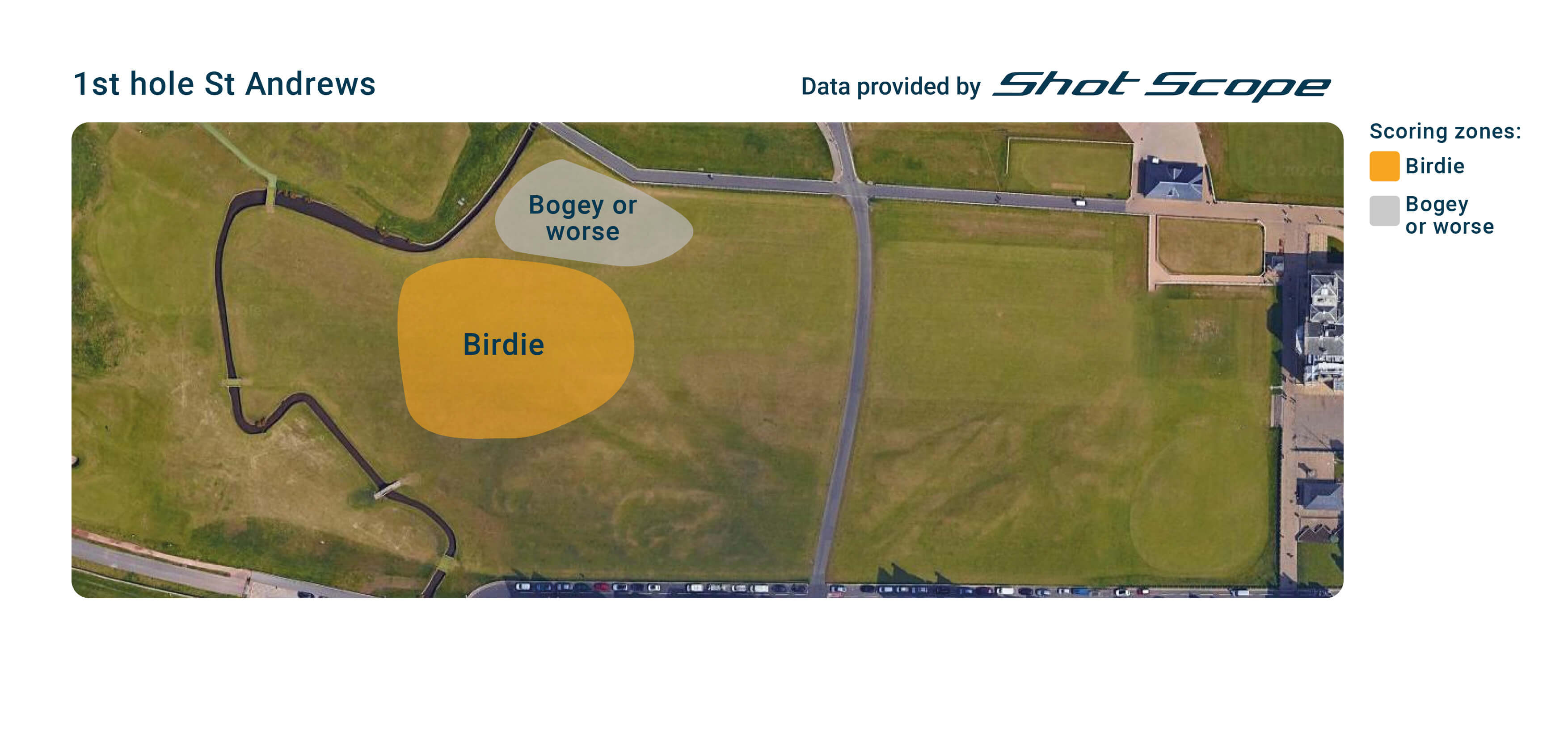
4) The 1st hole tee shot scoring zone indicates that the far right of the fairway, short of the burn, produces an average score of bogey or worse. All birdies on the first came from the middle of the fairway.
5) On the 11th hole, par 3, of those missing the green most miss short (34% of total shots end up short of the green). Shot Scope stats show that this is the toughest area to get up and down from, with only 31% of users achieving it.
Get the Golf Monthly Newsletter
Subscribe to the Golf Monthly newsletter to stay up to date with all the latest tour news, equipment news, reviews, head-to-heads and buyer’s guides from our team of experienced experts.
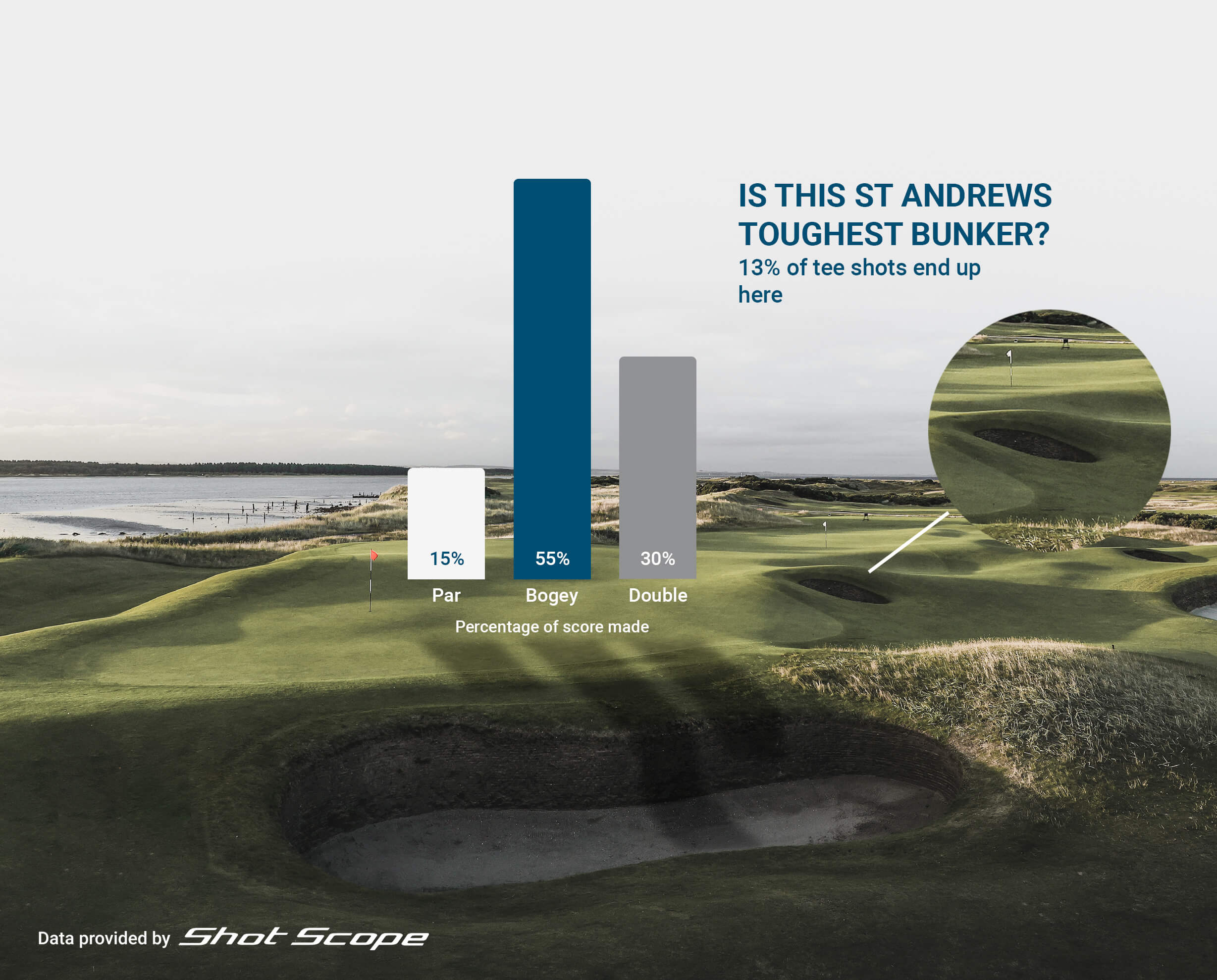
6) “Strath” bunker short of the 11th green punishes shots, with only 15% of players getting up and down from it. 55% make bogey and 30% make double or worse.
7) The 17th, par 4, sees only 20% of users making par – almost half (45%) miss the fairway left and golfers who end up on the 2nd fairway or further left, have always dropped shots.
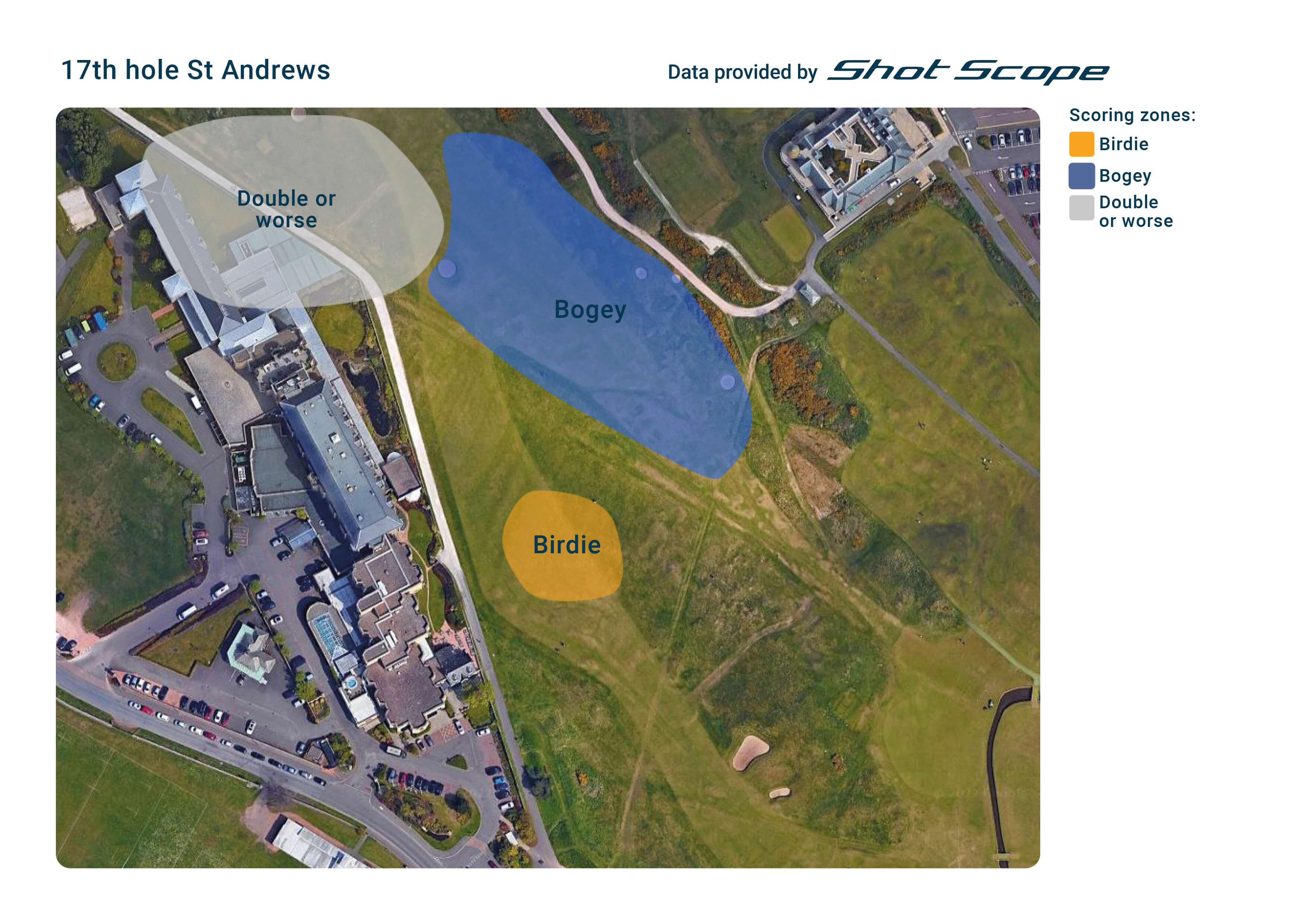
8) Around the green on the 17th, Shot Scope users are more likely to get up and down from the Road Hole bunker (15%) compared to only 4% who end up on the path or road through the green.
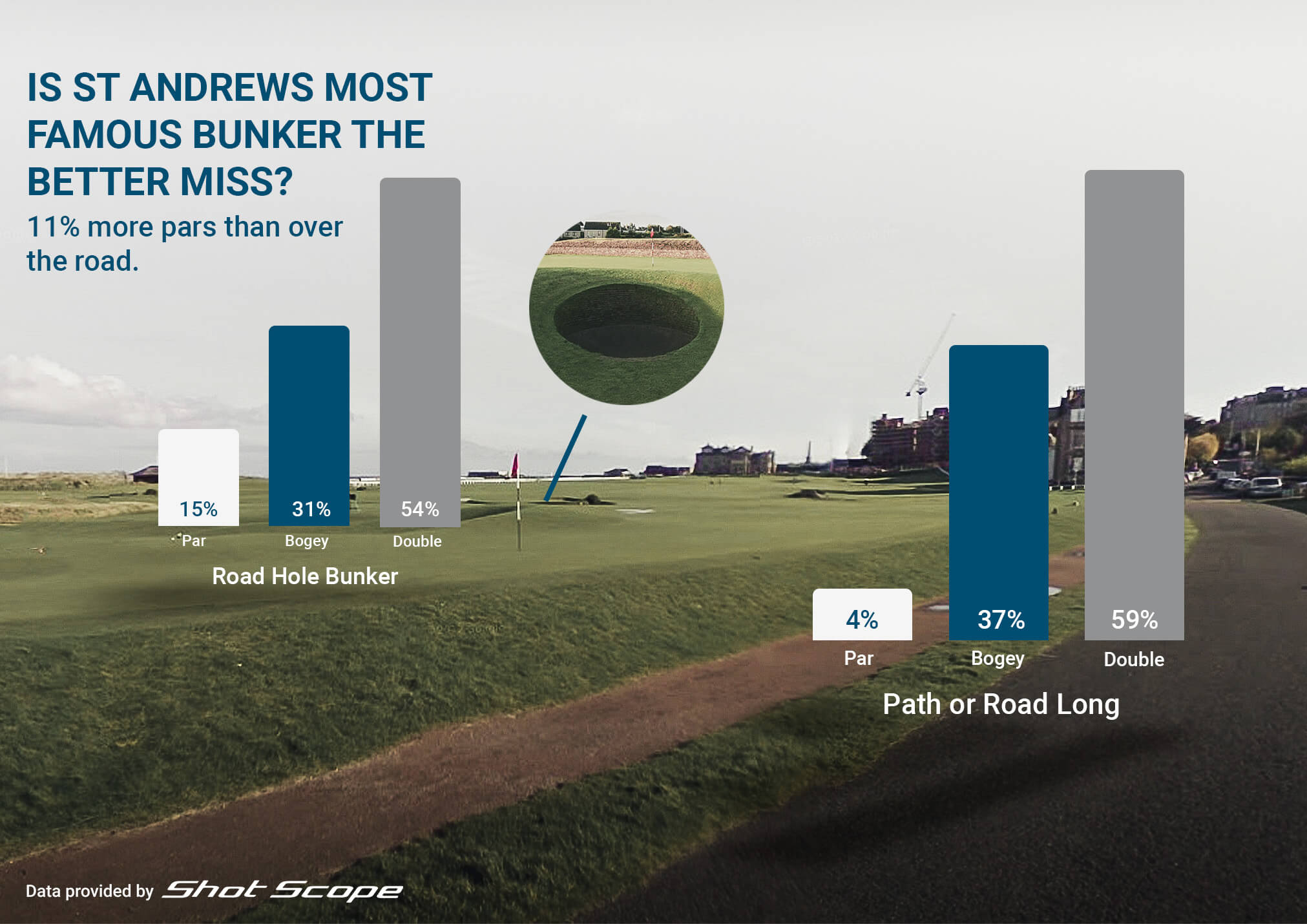
9) The 18th hole par 4 tee shot scoring zone shows that 71% of birdies come from users who hit over the road (Granny Clarks Wynd). In terms of direction, users on the left hand side or centre of the fairway have a lower scoring average than the right hand side of the fairway.
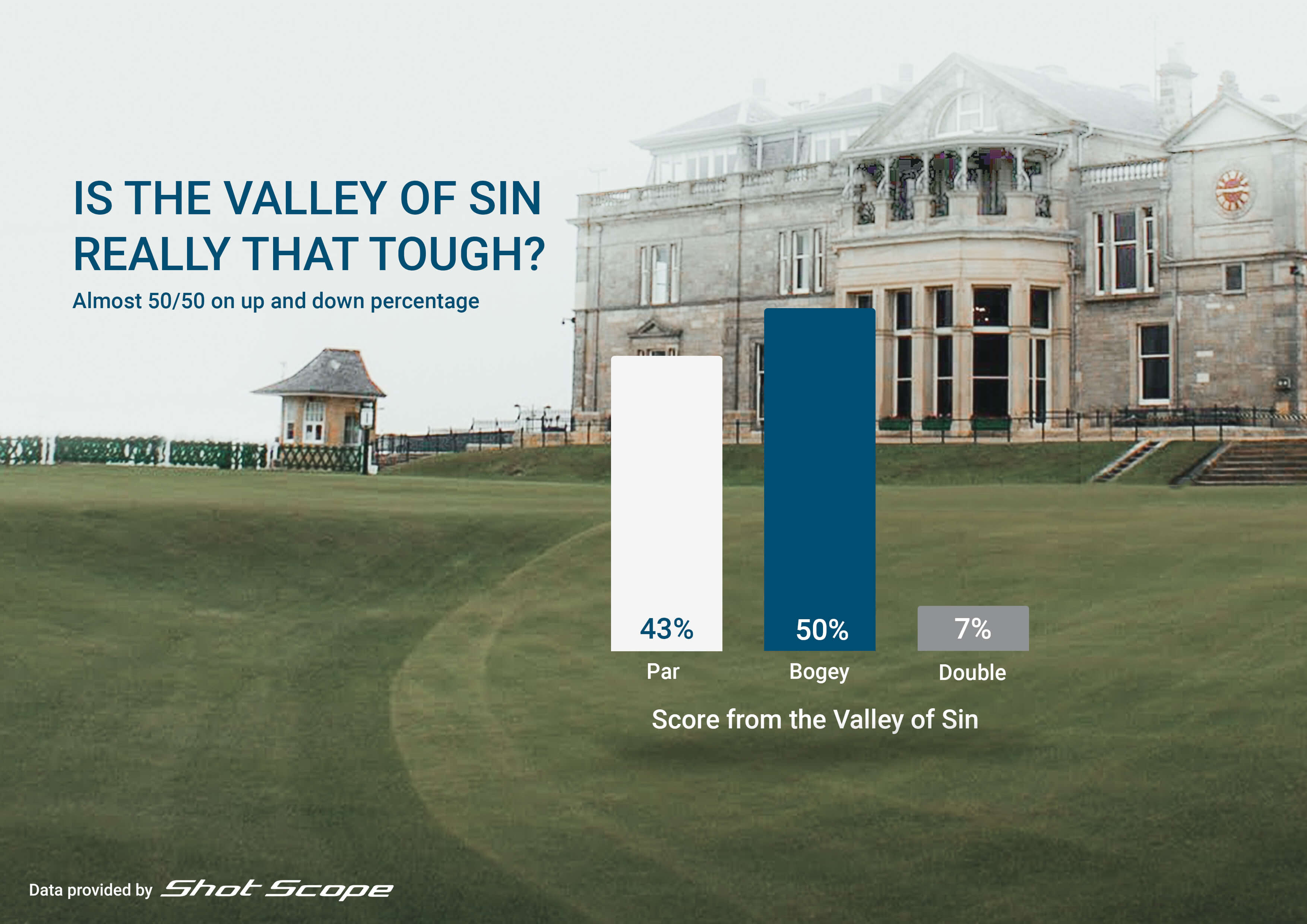
10) On the 18th hole, the Valley of Sin is perhaps not as harsh a penalty as expected – with 43% of players getting up and down from it.

Fergus is Golf Monthly's resident expert on the history of the game and has written extensively on that subject. He has also worked with Golf Monthly to produce a podcast series. Called 18 Majors: The Golf History Show it offers new and in-depth perspectives on some of the most important moments in golf's long history. You can find all the details about it here.
He is a golf obsessive and 1-handicapper. Growing up in the North East of Scotland, golf runs through his veins and his passion for the sport was bolstered during his time at St Andrews university studying history. He went on to earn a post graduate diploma from the London School of Journalism. Fergus has worked for Golf Monthly since 2004 and has written two books on the game; "Great Golf Debates" together with Jezz Ellwood of Golf Monthly and the history section of "The Ultimate Golf Book" together with Neil Tappin , also of Golf Monthly.
Fergus once shanked a ball from just over Granny Clark's Wynd on the 18th of the Old Course that struck the St Andrews Golf Club and rebounded into the Valley of Sin, from where he saved par. Who says there's no golfing god?
-
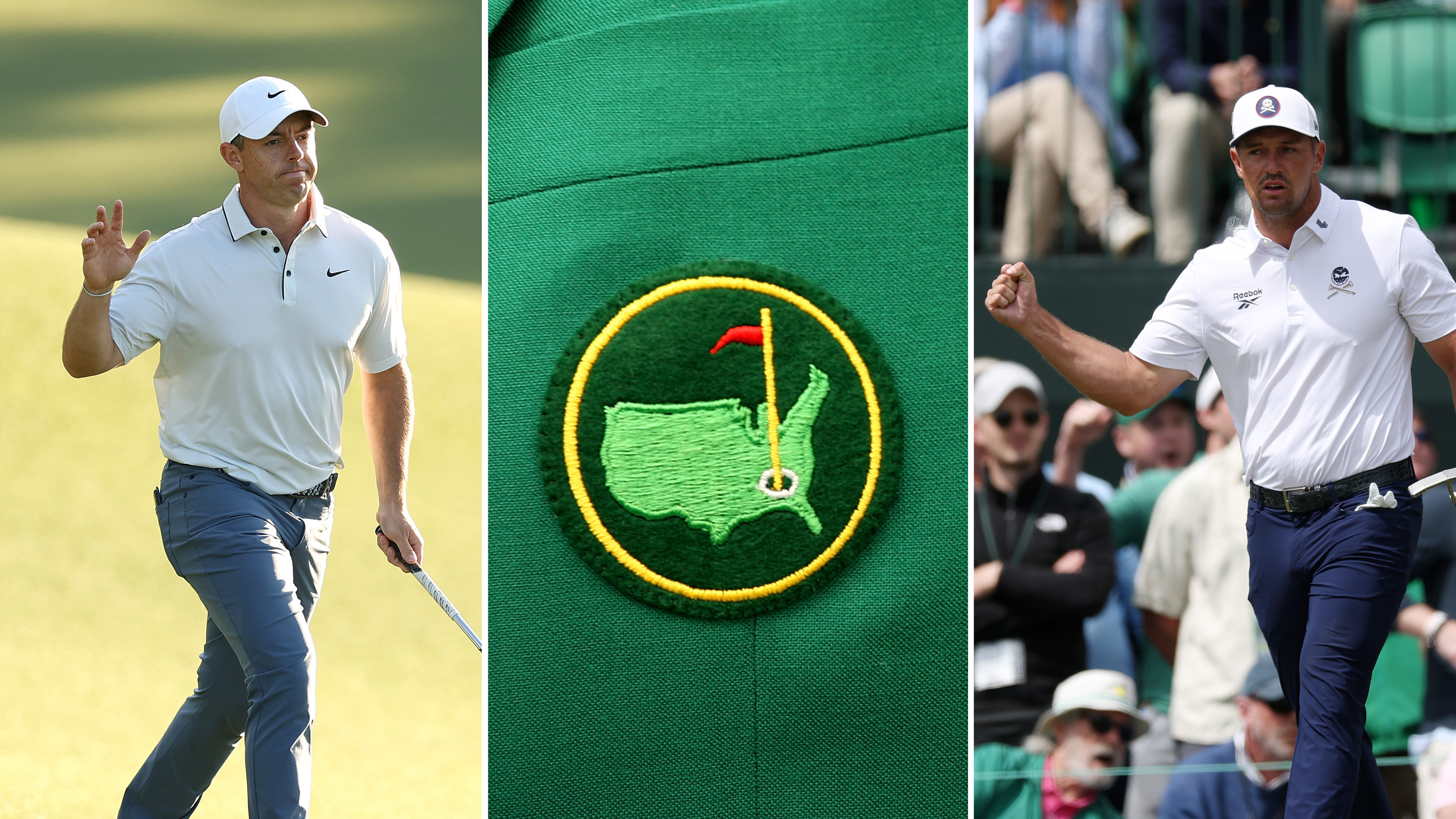 Rory McIlroy vs Bryson DeChambeau: Who Are We Picking To Win The 2025 Masters?
Rory McIlroy vs Bryson DeChambeau: Who Are We Picking To Win The 2025 Masters?We're set up for a blockbuster final day at Augusta National where Rory McIlroy and Bryson DeChambeau play together in the final group
By Elliott Heath Published
-
 The Masters Crystal Rory McIlroy Has Already Won At Augusta National This Week
The Masters Crystal Rory McIlroy Has Already Won At Augusta National This WeekMcIlroy leads going in to the final round at Augusta National, with the four-time Major winner already bagging some silverware before he looks to claim the Green Jacket
By Matt Cradock Published